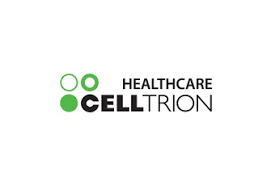Demonstration of equivalent efficacy and comparable safety of CT-P17 to EU-sourced adalimumab in this study supports the ongoing clinical evaluation of CT-P17 as an adalimumab biosimilar.
- Bone Health
- Immunology
- Hematology
- Respiratory
- Dermatology
- Diabetes
- Gastroenterology
- Neurology
- Oncology
- Ophthalmology
- Rare Disease
- Rheumatology
Celltrion Supports High-Concentration Adalimumab Biosimilar Launch With Phase 3 Trial Data
Celltrion announces the launch timing for its much anticipated high-concentration formulation of adalimumab and presents trial data supporting equivalence to the reference product.
With its sights set on launching a high-concentration, citrate-free formulation of adalimumab in the European Union this year, Celltrion Healthcare presented positive 1-year results confirming equivalence of the biosimilar (CT-P17, Yuflyma) in patients with rheumatoid arthritis (RA) at EULAR 2021.
Celltrion hopes to gain a share of the lucrative market for high-concentration, citrate-free adalimumab (Humira; AbbVie), which has been displacing sales of lower-concentration adalimumab since July 2018. The Incheon, Republic of Korea, company would be the first to launch a biosimilar formulation of the high-concentration 100-mg/mL adalimumab product.
“We anticipate launching Yuflyma in 7 European countries, including Germany and France, in the third quarter of 2021 and in 3 additional European countries, including Italy, in the fourth quarter,” Celltrion told The Center for Biosimilars®.
No date for a US launch has been established so far; however, access to the US market is tightly controlled by the originator company’s extensive patent portfolio on adalimumab, and lower-concentration formulations are not expected to debut in the United States until 2023.
Study Findings
The randomized, double-blind, phase 3 trial for Yuflyma presented at EULAR, the annual European Congress of Rheumatology, met primary and secondary end points for efficacy, pharmacokinetics, safety, and immunogenicity, demonstrating outcomes comparable to reference adalimumab in patients (N = 648) with moderate to severe RA despite methotrexate treatment.
Patients were randomized 1:1 to receive a 40-mg dose of the biosimilar or reference adalimumab every 2 weeks through week 24. At week 26, patients were randomized again to treatment maintenance on the biosimilar (n = 303) or reference product (n = 153), or a switch from reference adalimumab to Yuflyma (n = 151). This round of treatment continued through week 48.
For patients receiving maintenance therapy and those switched from reference adalimumab to Yuflyma up to week 52, the investigators reported comparable efficacy in terms of American College of Rheumatology–defined response rates for reduction in joint swelling and tenderness.
Similarly, drug concentrations at the lowest point prior to redosing (Ctrough) also were comparable in all 3 treatment groups. Observed mean Ctrough levels fell within parameters reported for reference adalimumab (5-8 mcg/mL).
Safety profiles for patients receiving Yuflyma also were comparable. The most common treatment-emergent adverse event (TEAE) was neutropenia. Injection site reactions, hypersensitivity/allergic reactions, and infections also were similar to established TEAEs for reference adalimumab.
The investigators said antidrug antibody (ADA) and neutralising antibody (NAb) results also were equivalent among patient cohorts. ADA/Nabs were 28.4%/24.8%, 27.0%/24.3%, and 28.3%/26.3% in patients maintained on Yuflyma or reference adalimumab or switched to Yuflyma, respectively.
“Demonstration of equivalent efficacy and comparable safety of CT-P17 to EU-sourced adalimumab in this study supports the ongoing clinical evaluation of CT-P17 as an adalimumab biosimilar,” said Jonathan Kay, MD, a professor at the University of Massachusetts Medical School and the trial's principal investigator.
In tandem with the trial results presentation, Celltrion stated that the European Commission has granted marketing authorization for the company’s infliximab biosimilar (Remsima) for use without intravenous (IV) infusion for new and existing patients with RA. Remsima received a positive recommendation for approval from the European Medicines Agency (EMA) as subcutaneous therapy without IV loading in adults with RA in March 2021.
Alvotech, a Reykjavik, Iceland–based company, also has developed a 100-mg/mL low-volume formulation of adalimumab (AVT02) but is facing legal action from AbbVie, which has made patent infringement allegations. Alvotech is anticipating FDA and EMA decisions on its AVT02 marketing applications in September 2021 and late 2021, respectively. Alvotech has responded to the AbbVie litigation with a suit seeking to invalidate Humira patents the company says are unjustified.
Newsletter
Where clinical, regulatory, and economic perspectives converge—sign up for Center for Biosimilars® emails to get expert insights on emerging treatment paradigms, biosimilar policy, and real-world outcomes that shape patient care.

